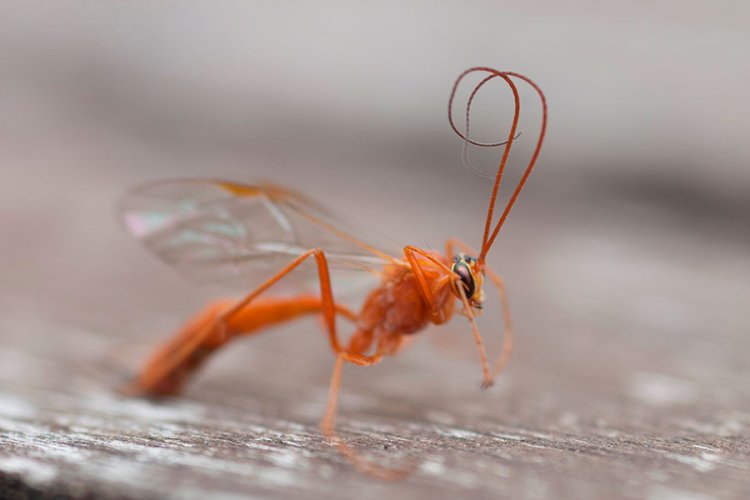World Malaria Day 2023 ! How can we protect ourselves from this disease?
World Malaria Day 2023 will be marked under the theme “Time to deliver zero malaria: invest, innovate, implement”.

World Malaria Day is an annual event that takes place on April 25th. The day was established by the World Health Organization (WHO) to raise awareness about the burden of malaria and the need for increased efforts to control and eliminate the disease. The theme for World Malaria Day 2023 is "Zero Malaria: Accelerating the fight against malaria to achieve a malaria-free world."
Malaria is a life-threatening disease that is transmitted by infected mosquitoes. It affects millions of people worldwide, particularly in sub-Saharan Africa, where over 90% of malaria deaths occur. World Malaria Day aims to mobilize resources and promote global efforts to control and eliminate malaria.
The day provides an opportunity for governments, non-governmental organizations, and other stakeholders to showcase their efforts to control and eliminate malaria. Activities may include community outreach programs, health education campaigns, and the distribution of insecticide-treated bed nets and other malaria prevention tools.
Efforts to control and eliminate malaria require a collaborative approach. The healthcare industry, including healthcare providers and pharmaceutical companies, play a critical role in the fight against malaria. Healthcare providers are responsible for diagnosing and treating malaria cases, while pharmaceutical companies develop and distribute anti-malarial drugs.
In recent years, there have been significant gains in the fight against malaria. According to the WHO, malaria mortality rates have declined by 60% since 2000. However, much more work needs to be done to achieve a malaria-free world. World Malaria Day serves as a reminder of the ongoing need to invest in malaria control and elimination efforts.
This year, 2023, the World Malaria Day theme is “Time to deliver zero malaria: invest, innovate, implement”
World Malaria Day is an important event that raises awareness about the burden of malaria and the need for increased efforts to control and eliminate the disease. The healthcare industry plays a critical role in the fight against malaria, and collaborative efforts are needed to achieve a malaria-free world.
Causes of Malaria
Malaria is a life-threatening disease caused by the Plasmodium parasite. It is transmitted to humans through the bites of infected female Anopheles mosquitoes. There are several factors that contribute to the spread of malaria, including:
-
Mosquito breeding sites: Mosquitoes breed in stagnant water, such as puddles, ponds, and water containers. The presence of these breeding sites increases the likelihood of mosquito populations, which can increase the spread of malaria.
-
Lack of access to healthcare: People who live in areas with limited access to healthcare may not receive timely diagnosis and treatment for malaria. This can lead to more severe illness and increase the risk of complications and death.
-
Climate and geography: Malaria transmission is influenced by climate and geography. Warmer temperatures and high humidity provide ideal conditions for mosquito breeding and the transmission of the disease. Malaria is most common in tropical and subtropical regions.
-
Resistance to anti-malarial drugs: Over time, the Plasmodium parasite can develop resistance to anti-malarial drugs, making them less effective in treating the disease. This can lead to more severe illness and increase the risk of complications and death.
-
Lack of mosquito control: Mosquito control measures, such as insecticide-treated bed nets and indoor residual spraying, can reduce the spread of malaria. However, in areas with limited resources, these measures may not be implemented or maintained, increasing the risk of malaria transmission. The spread of malaria is influenced by a combination of factors, including mosquito breeding sites, access to healthcare, climate and geography, resistance to anti-malarial drugs, and lack of mosquito control measures. Addressing these factors is critical in controlling and eliminating malaria.
How to protect or prevent ourselves from this life-threatening disease ?
Malaria is a life-threatening disease that is transmitted through the bites of infected mosquitoes. While there is currently no vaccine available to prevent malaria, there are several steps you can take to protect yourself from the disease:
-
Use insect repellent: Apply insect repellent containing DEET, picaridin, or oil of lemon eucalyptus to exposed skin to reduce the risk of mosquito bites.
-
Cover up: Wear long-sleeved shirts and long pants to reduce the amount of exposed skin.
-
Use bed nets: Use insecticide-treated bed nets while sleeping, especially if you are in an area with a high risk of malaria transmission.
-
Eliminate standing water: Mosquitoes breed in stagnant water, so eliminating standing water around your home or workplace can help reduce mosquito populations.
-
Take anti-malarial medication: If you are traveling to an area with a high risk of malaria transmission, taking anti-malarial medication as prescribed by your healthcare provider can help prevent the disease.
-
Seek medical care: If you experience symptoms of malaria, such as fever, chills, and flu-like symptoms, seek medical care immediately. Early diagnosis and treatment can reduce the risk of complications and death.
In conclusion, protecting yourself from malaria requires a combination of measures, including the use of insect repellent and bed nets, eliminating standing water, taking anti-malarial medication, and seeking medical care if you experience symptoms of the disease. By taking these steps, you can reduce your risk of contracting malaria and help control the spread of the disease.
What's Your Reaction?



















